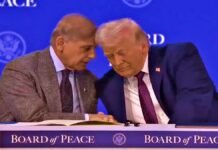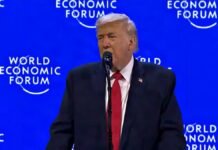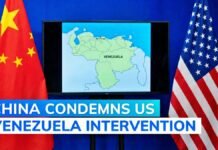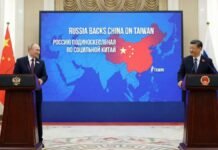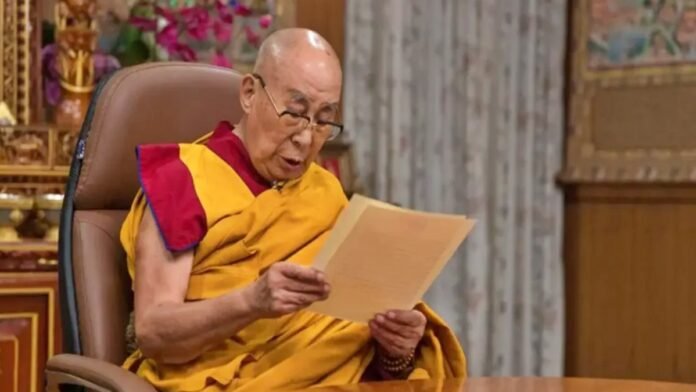
Key Points
- The Dalai Lama’s 90th birthday has reignited the global debate over his reincarnation, turning a spiritual issue into a high stakes geopolitical contest between India and China.
- The Dalai Lama has reaffirmed that only the Gaden Phodrang Trust, founded by his office, has the authority to recognize his successor directly challenging China’s claim to control the process.
- China insists any future Dalai Lama must be approved through the ‘Golden Urn’ system, maintaining its decades-long grip on Tibetan Buddhist succession.
- India, as host to the Dalai Lama and the Tibetan government-in-exile, faces mounting diplomatic pressure from Beijing to prevent any reincarnation process on its soil.
- The succession battle is seen as pivotal for the future of Tibetan Buddhism and the broader power struggle between democratic and authoritarian models in Asia.
New Delhi: The question of who will succeed the 14th Dalai Lama, Tenzin Gyatso, has escalated from a matter of religious tradition to a major international flashpoint. As the Dalai Lama celebrated his 90th birthday, he put to rest years of speculation by publicly reaffirming his succession plan: only the Gaden Phodrang Trust, a non-profit founded by his office in 2015, will have the sole authority to recognize his reincarnation. “No one else has any such authority to interfere in this matter,” he declared, sending a clear message to Beijing.
China’s Response: ‘Golden Urn’ and Religious Control
China swiftly rejected the Dalai Lama’s announcement, reiterating its long-held stance that only candidates approved through the centuries-old ‘Golden Urn’ lottery a process established by the Qing dynasty can be legitimate successors. This system has been used by the Chinese Communist Party (CCP) to assert control over Tibetan Buddhism and to install religious leaders loyal to Beijing.
Chinese authorities have warned that any reincarnation process conducted outside their purview, especially on Indian soil, will be considered illegitimate. The CCP has also insisted that the succession of both the Dalai Lama and the Panchen Lama, the second-highest figure in Tibetan Buddhism, must follow this procedure.
India’s Dilemma: Diplomatic Tightrope
India, home to the Dalai Lama and the Tibetan government-in-exile since 1959, now finds itself at the center of this unfolding drama. Intelligence sources indicate that Beijing is preparing to exert “immense pressure” on New Delhi to block any reincarnation proceedings within its borders. The Indian government faces a delicate balancing act: upholding its commitment to Tibetan autonomy and religious freedom while managing its complex relationship with China.
The Stakes: More Than a Spiritual Question
The outcome of the Dalai Lama’s succession will have far-reaching consequences:
- For Tibetans: The legitimacy of their spiritual leader and the future of Tibetan Buddhism hang in the balance.
- For China: Control over the reincarnation process is central to its strategy of consolidating authority in Tibet and countering the influence of the exile community.
- For India and the World: The issue represents a broader contest between democratic values and authoritarian control in Asia.
Table: Dalai Lama Reincarnation Competing Claims
| Stakeholder | Position on Succession | Authority Claimed | Key Implications |
|---|---|---|---|
| Dalai Lama & Gaden Phodrang Trust | Only Gaden Phodrang Trust can recognize reincarnation | Religious and historical tradition | Asserts Tibetan autonomy, challenges China |
| China (CCP) | Succession must use ‘Golden Urn’ system, require CCP approval | State authority, Qing dynasty precedent | Seeks to install loyalist, control Tibetan Buddhism |
| India | Host to Dalai Lama and exile government; under pressure | Diplomatic, humanitarian host | Faces strategic, diplomatic, and security dilemmas |
What Lies Ahead?
As the Dalai Lama’s succession plan directly confronts China’s claims, the world is watching how India will navigate this unprecedented challenge. The coming years will likely see increased diplomatic maneuvering, with the future of Tibetan Buddhism and the broader regional order at stake. The next Dalai Lama’s recognition may well become a defining test of religious freedom, sovereignty, and the balance of power in Asia.








